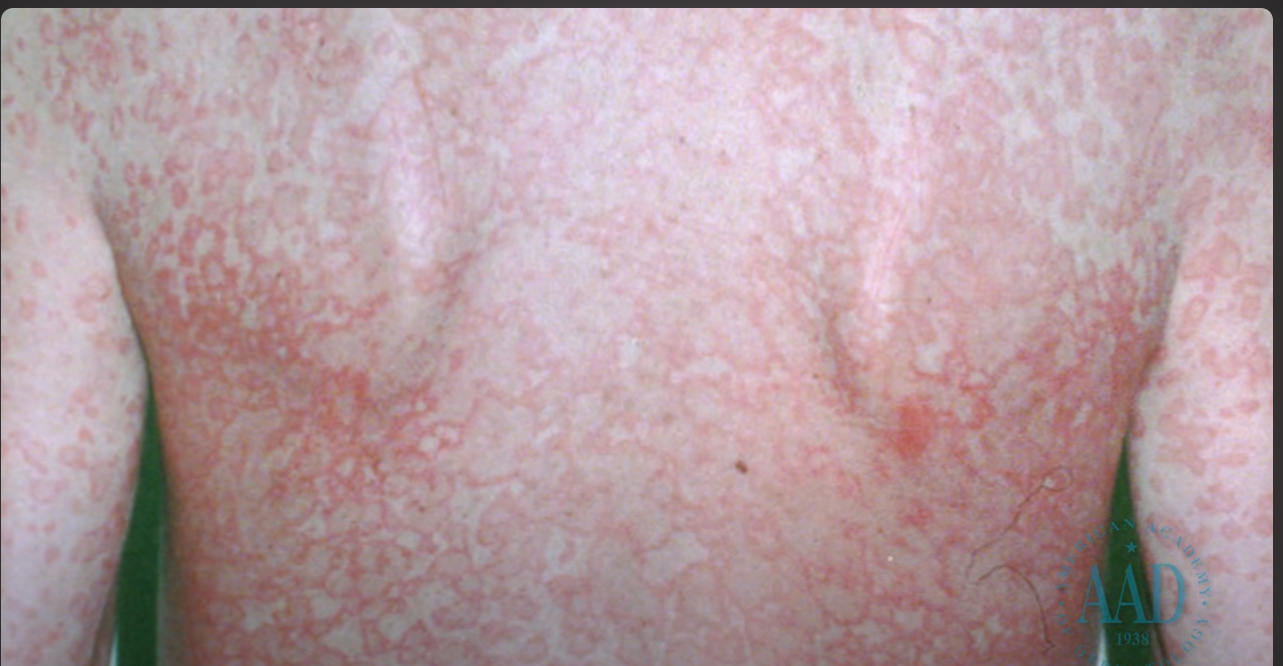What is Irritant Skin? Understanding the Causes, Symptoms, and Effective Treatments
Introduction
Irritant skin is one of the things which effects humans health in many ways. The human skin is a remarkable organ that serves as the body’s first line of defense against external factors. However, it is not invincible, and sometimes it can react adversely to certain substances, leading to what we commonly know as irritant skin. In this article, we will delve into the concept of irritant skin, explore its causes, common symptoms, and discuss effective treatments to manage and prevent skin irritations.
Understanding Irritant Skin
Irritant skin refers to a condition where the skin becomes inflamed or irritated due to exposure to certain irritants. This reaction is different from an allergic reaction, as it does not involve the immune system. Irritant skin reactions are localized responses that occur in the area of contact with the offending substance.
Differences Between Irritant Skin and Allergic Reactions
It is essential to distinguish between irritant skin reactions and allergic reactions, as they have different underlying mechanisms. While both can cause skin redness, itching, and inflammation, allergic reactions involve the immune system and are triggered by an allergen to which the individual has become sensitized. On the other hand, irritant skin reactions occur in response to direct contact with irritating substances, regardless of any prior exposure.
Prevalence and Risk Factors
Irritant skin reactions are relatively common and can affect people of all ages and skin types. Some individuals may be more prone to experiencing irritant skin, depending on various risk factors, including:
- Frequent exposure to chemicals or irritants in the workplace
- Overexposure to water or frequent handwashing
- Living in dry or cold climates
- Having a history of atopic dermatitis or other skin conditions
Causes of Irritant Skin
There are numerous potential causes of irritant skin reactions, and they can vary from person to person. Some common irritants include:
Contact with Harsh Chemicals
Frequent contact with strong detergents, cleaning agents, solvents, or beauty products containing certain chemicals can lead to irritant skin reactions. Individuals who work in industries where they handle such substances daily may be at a higher risk.
Environmental Triggers
Exposure to environmental factors such as extreme heat, cold, or wind can strip the skin of its natural oils and moisture, causing it to become dry, red, and irritated.
Overexposure to Water
Believe it or not, even water can have an irritant effect on the skin. Prolonged exposure to water, especially hot water, can disrupt the skin’s natural protective barrier and lead to irritation.

Weather Conditions and Temperature Extremes
Changes in weather conditions, particularly during very hot or cold periods, can exacerbate skin irritation. Cold, dry air in winter and hot, humid weather in summer can both contribute to irritant skin reactions.
Symptoms of Irritant Skin
The symptoms of irritant skin can manifest shortly after exposure to an irritant and may include:
- Redness and inflammation in the affected area
- Dryness and flakiness of the skin
- Itching and a burning sensation
- Formation of blisters or rashes
Identifying Irritant Skin Triggers
It is crucial to identify the specific triggers that cause irritant skin reactions to effectively manage and prevent future episodes. Two common methods of identifying triggers include:
Patch Testing
Patch testing is a diagnostic procedure conducted by dermatologists to determine if an individual is sensitive to specific substances. Small amounts of potential irritants are applied to patches, which are then placed on the skin for a period of time. If a reaction occurs, the allergen can be identified.
Keeping a Skin Diary
Maintaining a skin diary can be helpful in identifying patterns and potential triggers for irritant skin reactions. By noting the products used, environmental exposures, and any symptoms experienced, individuals may be able to pinpoint the irritant causing their skin issues.
Effective Treatments for Irritant Skin
When this reactions occur, several treatments can provide relief and promote healing:
Moisturization and Barrier Repair
Regularly moisturizing the skin helps maintain its natural protective barrier, reducing the risk of this kind of skin reactions. Find products with ingredients like ceramides, hyaluronic acid, and glycerin.
Topical Corticosteroids
For more severe its reactions, topical corticosteroids may be prescribed by a healthcare professional to reduce inflammation and itching.
Emollients and Humectants
Emollients and humectants are substances that help lock in moisture and soothe the skin. Applying products with these properties can aid in reducing irritation and promoting healing.
Avoiding Triggers
The best way to prevent irritant skin reactions is to avoid contact with known irritants. If certain chemicals or substances consistently cause reactions, finding suitable alternatives or using protective measures is essential.
Preventing Irritant Skin
Prevention is key to managing irritant skin and minimizing discomfort. Some effective preventive measures include:
Proper Skin Care Routine
Adopting a gentle skin care routine using mild, fragrance-free products can help maintain the skin’s natural balance and reduce the risk of irritation.
Protective Measures at Work
If your job involves handling harsh chemicals or substances, wearing appropriate protective gear like gloves and long sleeves can safeguard your skin from potential irritants.
Clothing and Fabric Considerations
Wearing soft, breathable fabrics and avoiding tight-fitting clothing can reduce friction and irritation on the skin.
Natural Remedies for Irritant Skin
In addition to medical treatments, some natural remedies may help soothe irritation on skin:
Aloe Vera
Aloe vera has anti-inflammatory properties and can provide a cooling effect on irritated skin.
Coconut Oil
Coconut oil can help moisturize the skin and reduce dryness and flakiness.
Oatmeal Baths
Oatmeal baths can soothe itching and inflammation, making them beneficial for irritated skin.
Chamomile
Chamomile has calming properties that may alleviate redness and irritation when applied topically.
When to Seek Medical Attention
While most irritant skin reactions can be managed at home, there are instances where medical attention is necessary:
- If the symptoms persist or worsen despite home care efforts
- If signs of infection, such as pus or fever, develop at the affected site
In such cases, it is essential to consult a dermatologist for proper evaluation and treatment.
Impact of Diet on Irritant Skin
Though diet alone cannot treat this skin reactions, some foods may exacerbate inflammation, while others may support skin health. It is essential to maintain a balanced diet with plenty of fruits, vegetables, and omega-3 fatty acids to promote overall well-being.

What is the synonyms of irritant?
Synonyms of “irritant” include:
- Annoyance
- Aggravation
- Nuisance
- Provocation
- Disturbance
- Bothersome
- Pest
- Trouble
- Source of irritation
- Irritating agent
Caring for Irritant Skin in Children
Children’s skin can be more sensitive, making it prone to irritant reactions. Some specific considerations for caring for children’s skin include:
Also Read-Can I get rid of psoriasis Complete in 2023?
Diaper Rash and Irritations
Changing diapers frequently and using diaper creams can help prevent and manage diaper rash.
Gentle Baby Products
Opt for gentle, hypoallergenic baby products free from harsh chemicals or fragrances.
Lifestyle Tips for Managing Irritant Skin
Certain lifestyle choices can influence the severity of irritant skin reactions:
Stress Management
Stress can worsen skin conditions, including irritant skin reactions. Practicing stress-reducing techniques such as meditation, yoga, or spending time in nature can be beneficial.
Avoiding Smoking and Alcohol
Smoking and excessive alcohol consumption can have a negative impact on skin health, leading to increased irritation and dryness.
Understanding Eczema as an Irritant Skin Condition
Eczema is a skin problem that makes your skin dry, itchy, and red. Certain things can make it worse. Understanding eczema and its triggers can help individuals manage their symptoms effectively.
Addressing Irritant Skin in Specific Body Areas
Its reactions can occur on various parts of the body, and some areas may require specific care:
Irritant Contact Dermatitis on Hands
Frequent handwashing and exposure to harsh substances can lead to irritant contact dermatitis on the hands. Wearing gloves and using hand creams can help.
Face and Neck Irritations
The face and neck are sensitive areas. Using gentle skincare products and avoiding harsh cleansers is vital.
Irritated Feet
For individuals who spend long hours on their feet, proper footwear and foot care are essential to prevent irritations.
Maintaining Healthy Skin Barrier
The skin’s barrier function is crucial in protecting against irritants. Some steps to strengthen the skin barrier include:
Importance of the Skin Barrier
Understanding the role of the skin barrier in maintaining skin health.
Steps to Strengthen the Barrier
Using suitable products and practices to support and strengthen the skin’s natural protective barrier.
Conclusion
In conclusion, It is a common issue that affects people of all ages and can be caused by various factors. Understanding the triggers, symptoms, and preventive measures for irritant skin reactions is crucial for effective management. By adopting a gentle skin care routine, avoiding irritants, and seeking medical attention when necessary, individuals can maintain healthy.
For More – Knowledge on Irritant skin.





